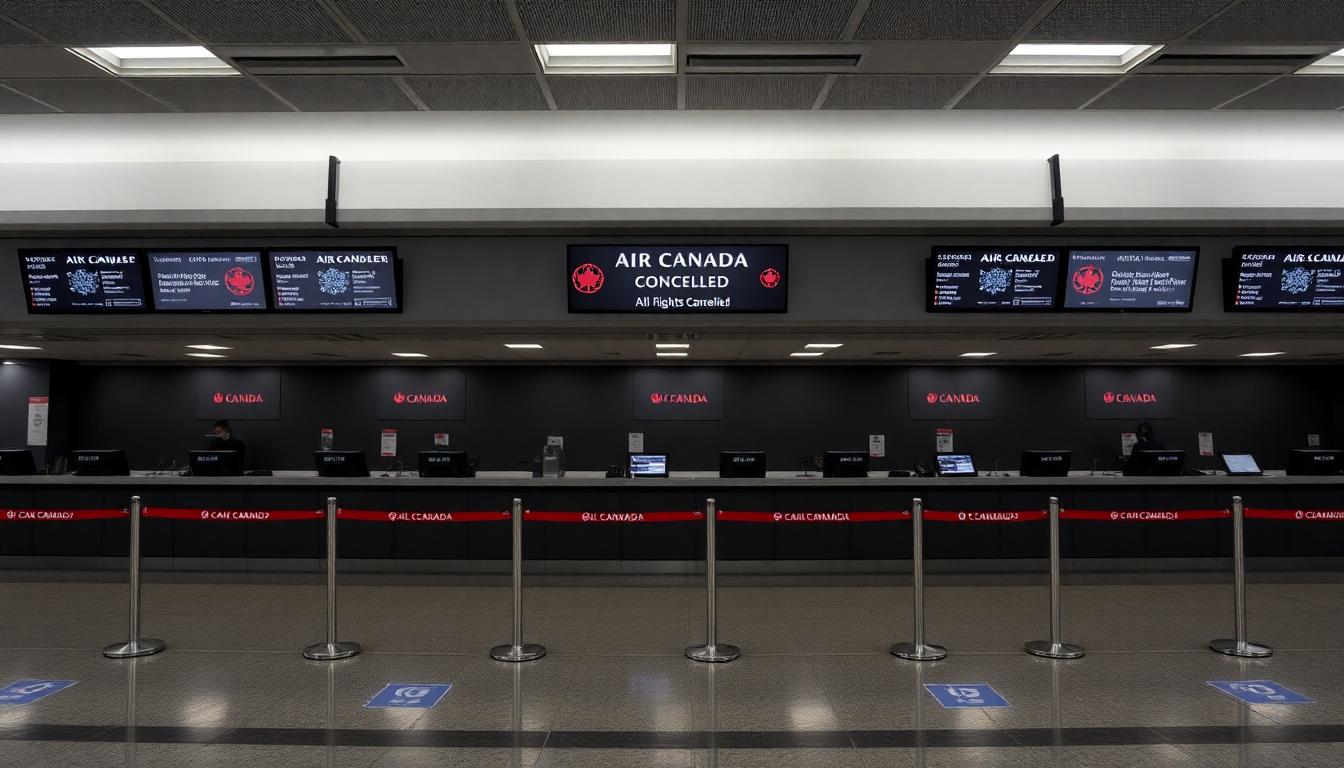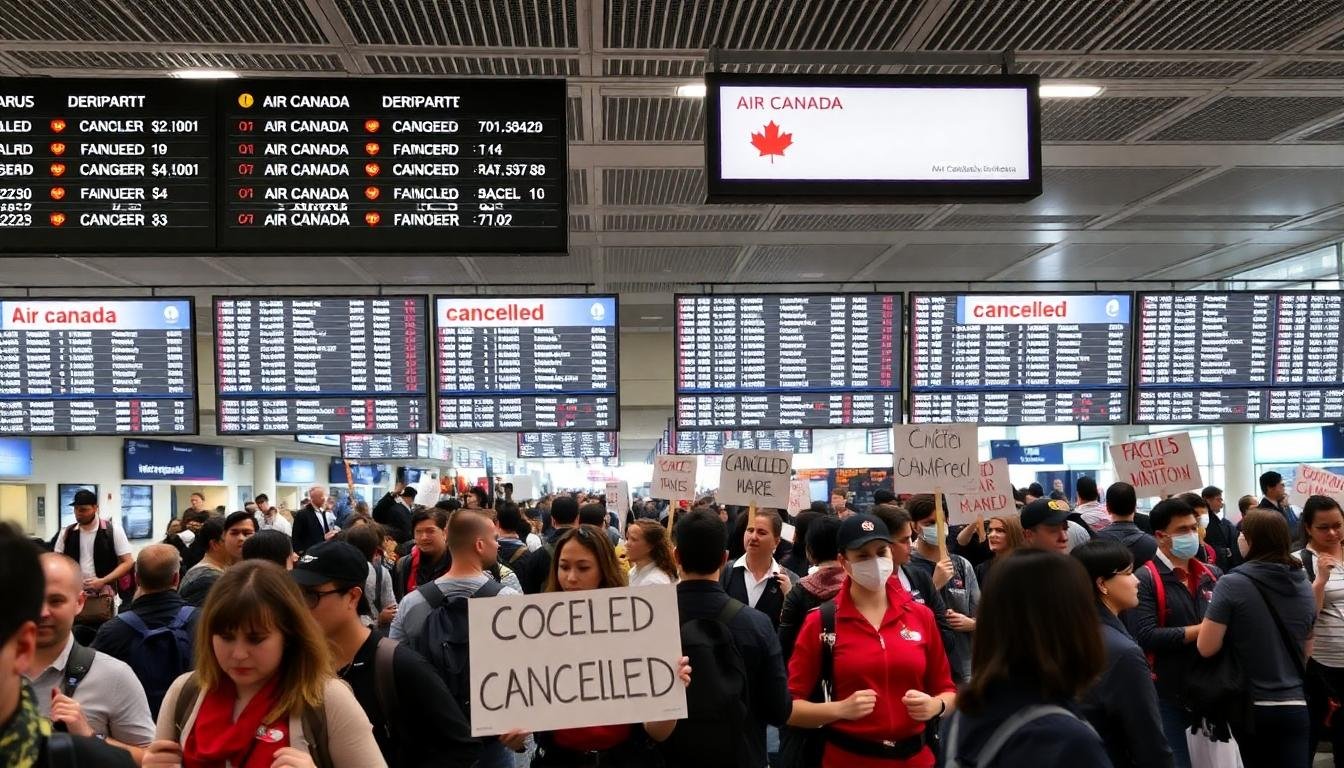Travelers across Canada and around the world are facing chaos this August as Air Canada, the nation’s largest airline, stands at the center of a major labor dispute. Thousands of flight attendants, represented by the Canadian Union of Public Employees (CUPE), have issued a strike notice. Air Canada has responded with a lockout, prompting one of the largest operational disruptions in its history. Here’s what’s happening, what it means for travelers, and why this showdown could change the airline industry for years to come.
The Roots of the Dispute: Wages, Work Conditions, and Fairness
The dispute involves more than 10,000 flight attendants represented by CUPE. Their main concerns? Wages that haven’t kept pace with inflation, unpaid work hours, and a lack of fair compensation for the tough demands of their job.
Air Canada, for its part, claims it offered a four-year deal with a 38% total compensation increase—a substantial proposal on paper. But flight attendants say the offer doesn’t go far enough, especially given the rising cost of living in Canada. They have also repeatedly rejected the airline’s request for binding arbitration and insist that real negotiations are the only way to reach a fair deal.
How Did We Get Here? Timeline of Tension
- August 13, 2025: CUPE issues an official 72-hour strike notice.
- Immediately after: Air Canada issues its own lockout notice, initiating what it calls a “phased wind-down” of operations.
- August 16, 2025: Strike is set to begin, with thousands of flights canceled and cross-country travel in turmoil.
The airline and the union have been at odds for months. Air Canada’s offers of wage increases have been dismissed as “not enough.” The union has highlighted the challenges: inflation up nearly 70% since 2000, while flight attendant pay has barely moved. Many flight attendants have had to turn to food banks or side jobs.
What’s the Impact on Travelers?
The result for travelers: massive disruption.
Air Canada is Canada’s global airline, flying to 65 countries with a fleet of 259 aircraft. The lockout will shut down most international and domestic flights. Only regional flights, operated by Air Canada Express on Jazz and PAL Airlines, will keep flying—covering just 20% of normal daily routes.
If you have a flight booked between August 15 and 18, you’re likely affected. The airline is letting travelers rebook for free on later dates or get full refunds for canceled flights. Air Canada urges passengers to check flight status online or on the Air Canada app before heading to the airport.

Passenger Rights and Compensation: Know Your Options
Canada’s passenger protection rules require airlines to refund canceled flights or offer alternate arrangements. If your Air Canada flight is canceled due to this dispute, you have the legal right to:
- Full refunds for canceled flights
- Free rebooking for alternate dates (between August 21 and September 12)
- Possible compensation if delays happen on short notice
Check your flight status regularly—do not go to the airport without confirmation.
The Big Picture: Why This Strike Matters
This is more than a single contract fight. The Air Canada standoff is a key test of airline labor standards and management-labor relations across all of North America.
Many airlines face similar issues: wages that fail to match living costs, increased job stress, longer hours, and a post-pandemic travel boom that hasn’t always translated into fairer pay for staff. Air Canada’s 2025 lockout and strike could set the tone for contract talks at other airlines by showing that workers are willing to walk out—and that airlines may feel forced to shut down rather than risk chaotic strikes.

Air Canada’s Response: “Phased Wind-Down” and Government Appeals
Air Canada says the lockout and phased shutdown—not full-out work stoppages—will help avoid chaos and keep operations as orderly as possible. The airline emphasizes that safety is not at risk and is offering options to rebook or get refunds.
The airline has asked for the Canadian government to appoint a mediator or compel binding arbitration under the Canada Labour Code. Their case: after months of stalled bargaining, with substantial wage offers rejected, it’s time for government intervention to avoid severe economic and public service disruption.
The union’s reply? No thanks—they want to keep negotiating and are pushing for more action on wage fairness, paid work hours, and eliminating unpaid labor.
Long-Term Consequences: Labor Rights, Airline Profits, and Canada’s Travel Industry
This dispute isn’t just about Air Canada. It’s a fight over the future of airline work—and who gets to benefit from the resurgence in travel.
Flight attendants argue that while airline profits have rebounded since the pandemic, paychecks at the entry level have barely budged. They want better base pay, paid time for all duties performed (not just when the plane is in the air), and more respect for the work they do.
Industry experts say the outcome could influence union strategies and airline management well beyond Canada. If the union succeeds, expect more labor militancy across the airline industry. If Air Canada wins concessions or gets government intervention, other companies may try similar tactics.
What Should Travelers Do Now?
- Check your flight status often—use the Air Canada website or mobile app.
- Have backup plans in case your flight is canceled.
- Contact Air Canada for refund or rebooking options.
- Stay tuned to news, especially if you’re flying internationally.
Bottom Line
The Air Canada flight attendant strike and lockout is historic. It signals that workers are willing to demand change even if it means widespread travel disruptions. The resolution—whatever it is—will shape labor relations and travel experiences for years to come. For now, travelers and the airline industry are bracing for one of the biggest shakeups Canada’s skies have ever seen.
To contact us click Here .







